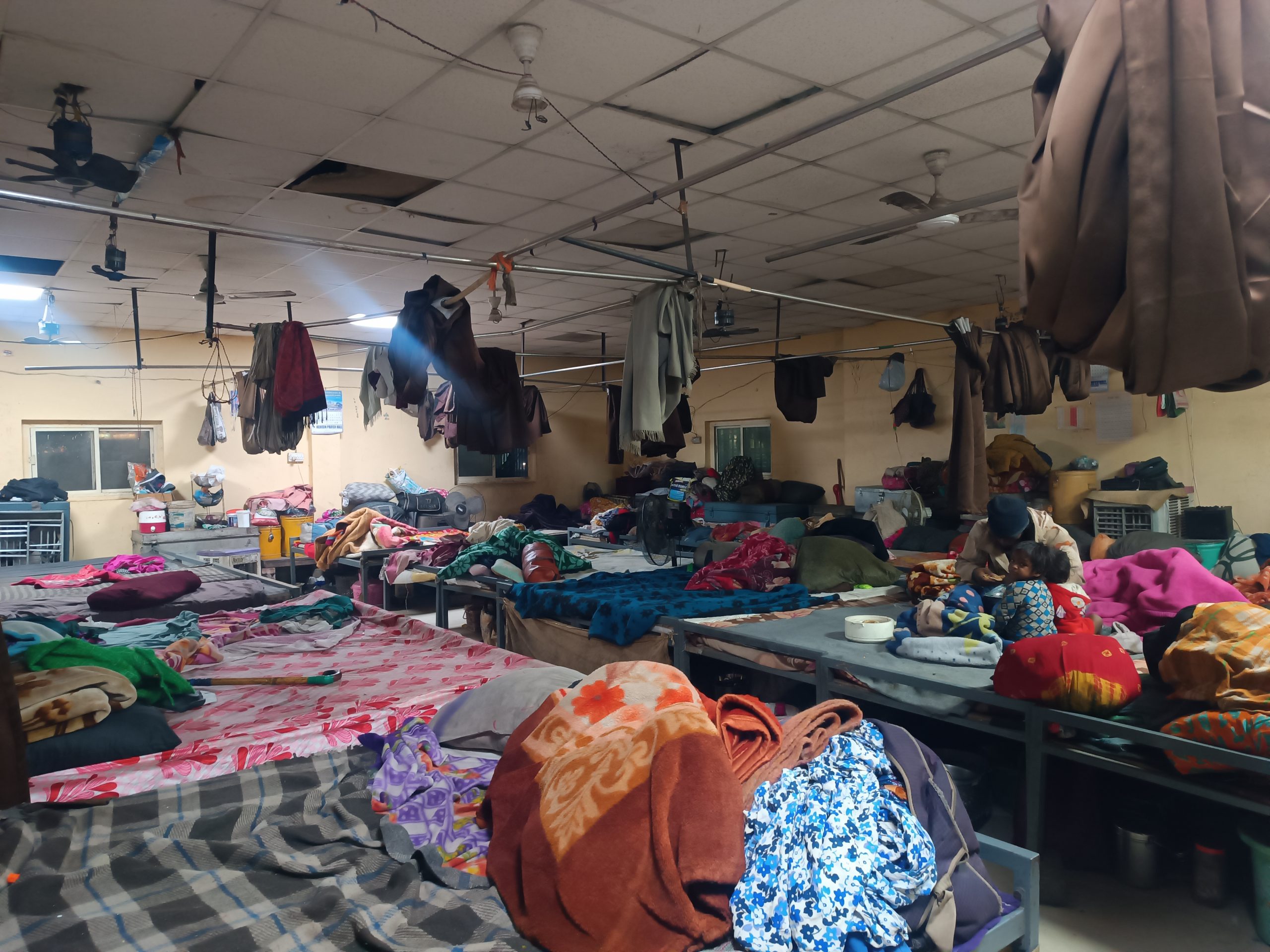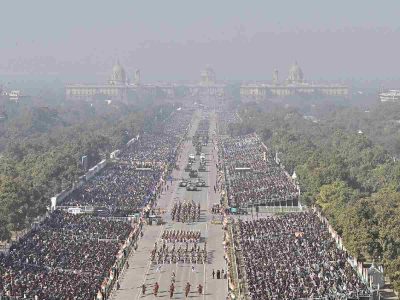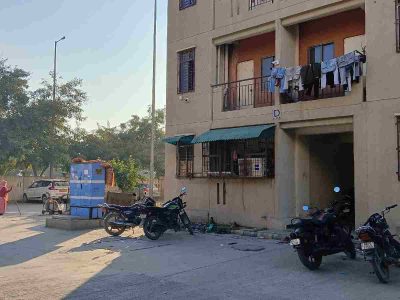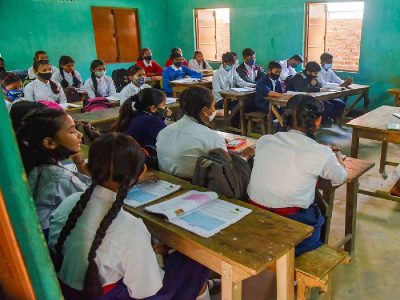The national capital has been experiencing cold days since Christmas evening with minimum temperature reaching below 10 degrees Celsius regularly.
The low temperature, coupled with icy wind and dense fog, has led to chilly days in the city, leaving thousands of homeless Delhiites exposed.
Though the Delhi Urban Shelter Improvement Board (DUSIB) has set up temporary shelter homes to protect homeless people from biting cold, they remain under-utilised as many homeless people continue to sleep in the open by the roadside.
According to DUSIB, as of January 8, 2023, Delhi has 337 shelter homes with a total occupancy of 20,024. However, currently only 8,346 beds are occupied at night and only half of that are occupied during day-time.
The roads near Jama Masjid and Delhi Gate are filled with hundreds of homeless people.
“We make arrangements for anyone who comes here seeking shelter. But we can’t force people to come here and sleep,” said Mohammad Talib, caretaker of a temporary shelter home near Jama Masjid.
“The government and DUSIB run a rescue operation too. When it starts getting very cold, we even rescue those sleeping in the open,” added Talib.
Bipin Rai, an official from DUSIB, echoes the same sentiment.
“Sometimes during our rescue drives, especially during cold-wave days, people do not agree to come to the shelters,” he said.
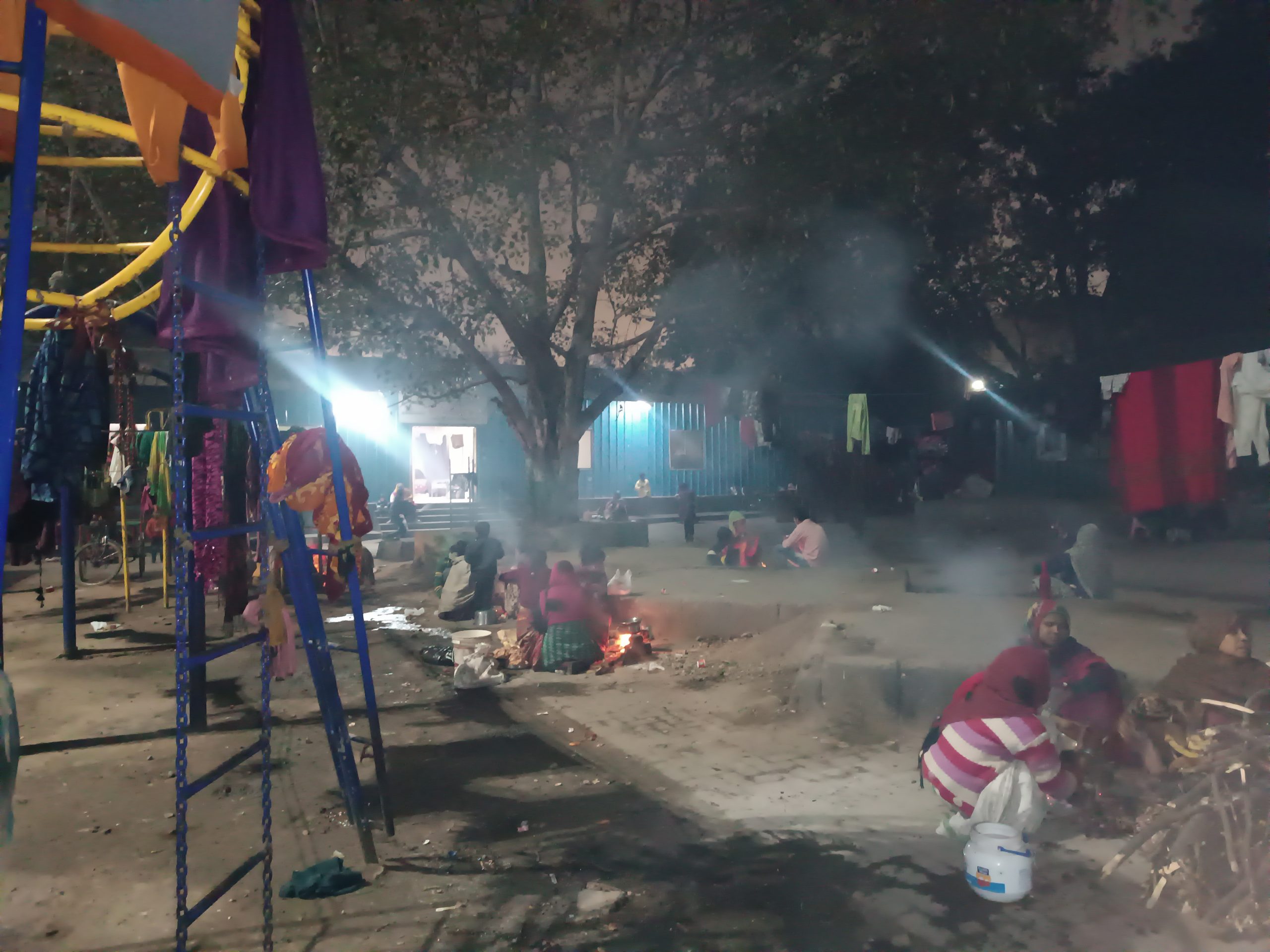
“Sometimes those who have been living for years on the roadside do not want to sleep inside a shelter home. At times, they want to smoke at night which is not allowed in shelter homes,” he added further.
From late December till mid-January, a lot of NGOs and individuals donate free food, blankets and even give money, which at times discourages people from going to shelter homes.
Lack of identity cards also prevents homeless people from seeking space in shelter homes.
A homeless person sleeping just 100 metres away from the Jama Masjid shelter home explained his dilemma, “I don’t have any identity card. They ask for an identity card. That’s why I sleep here out in the open.”
When asked about how the homeless people can be brought into DUSIB shelter homes, Rai answered, “It would be better if people who like to extend help to homeless people do it inside the shelter homes.”

There are, however, people who are making good use of the shelter homes and plan to spend the entire winter season here.
Ifran Khan, a painter who hails from Bihar, is staying in the DUSIB shelter home near the Hazrat Nizamuddin Railway Station with wife and three children.
“It was very cold outside. I tried to make some arrangements but could not. So, I sought shelter here,” said Khan sitting next to the bonfire in the shelter home premises.
“I am planning to stay here till the end of the peak winter season. Then I will look for a flat,” he added when questioned on how long he plans to stay at the shelter home.
The shelter home, which usually houses 400 residents, is brimming with people, giving shelter to nearly 550 people this season.
“Most of the people come at night and leave in the morning for work. Only the women and children stay in shelters during day-time,” said the caretaker in the shelter home near Hazrat Nizamuddin Railway Station.
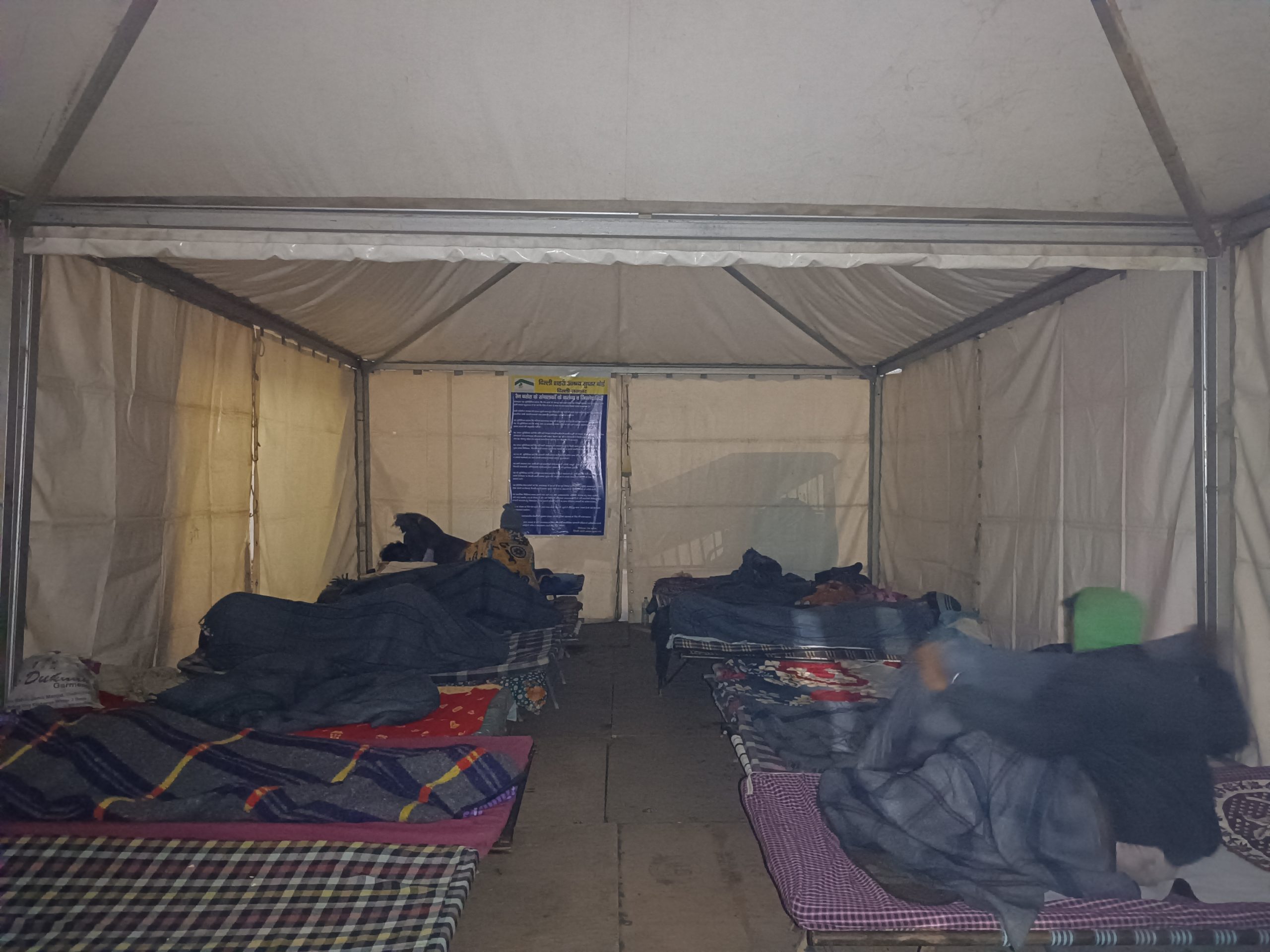
“We have set up four temporary shelters in anticipation of winters. We are giving free food, blankets and hot water to people living here,” added the caretaker, who wished to remain anonymous.
“Usually, travellers who miss their bus or train, rickshaw-pullers or homeless people come here to sleep. We allow everyone who seeks shelter.”
When asked about facilities at the centre, Khan said, “Yes, there are some problems related to food and water. But I find it more comfortable than sleeping in certain stations.”

